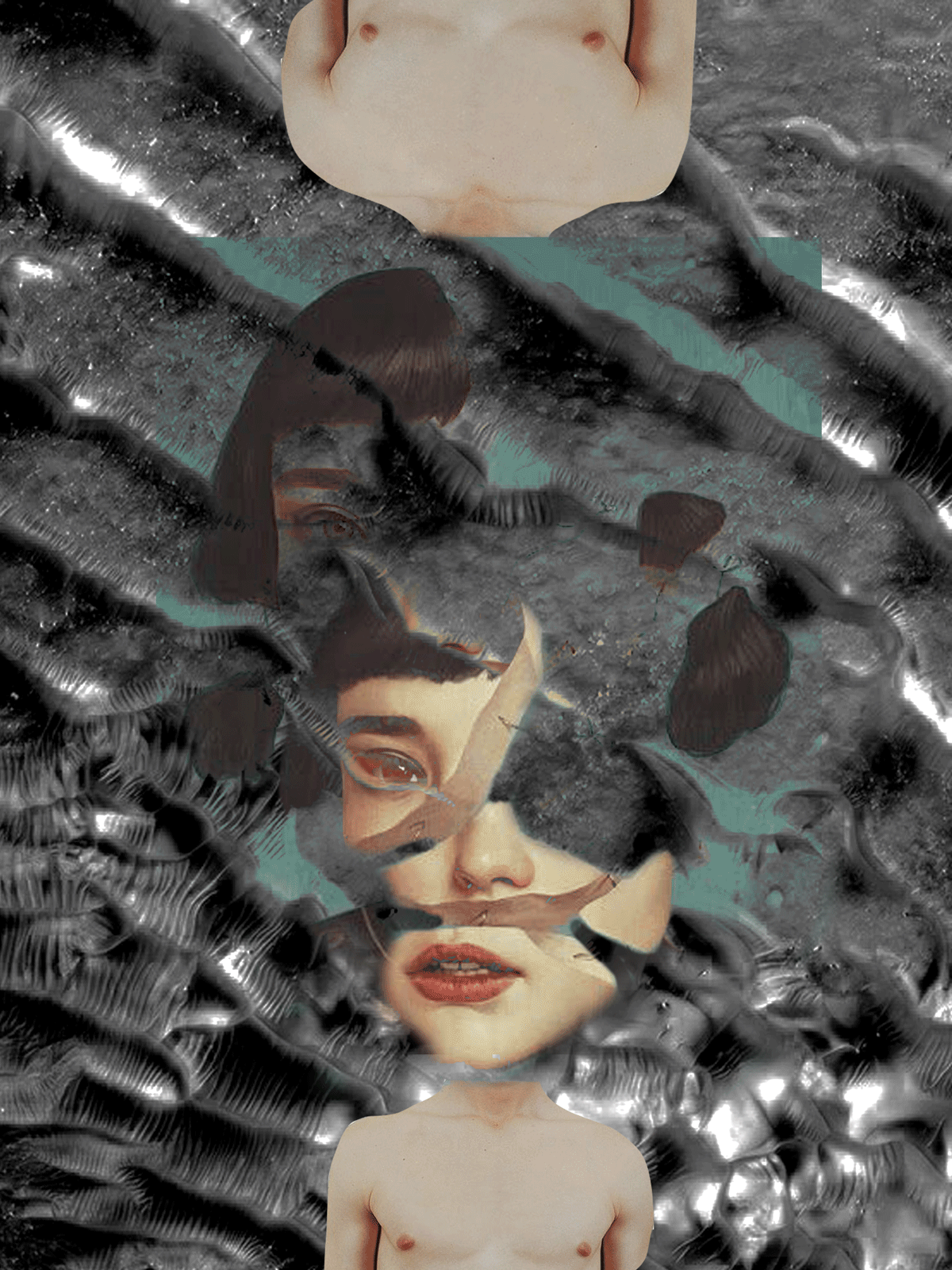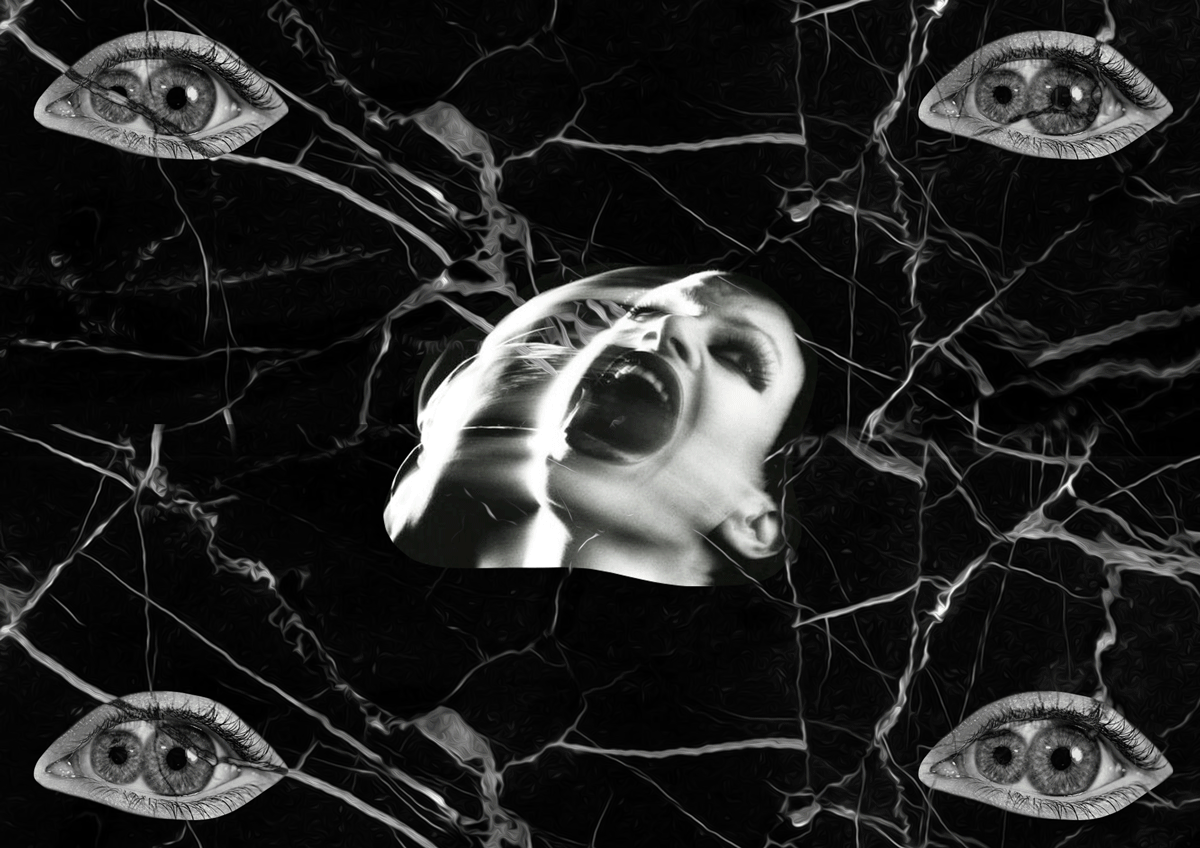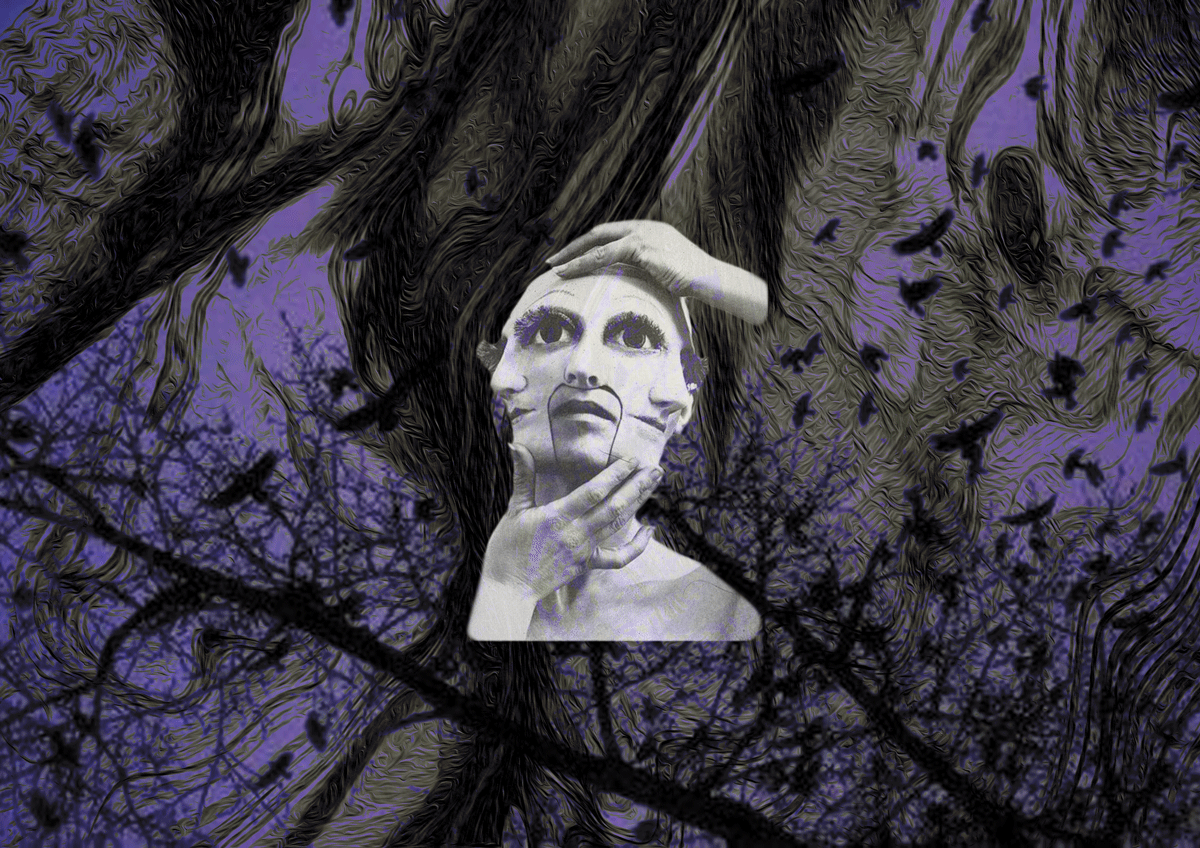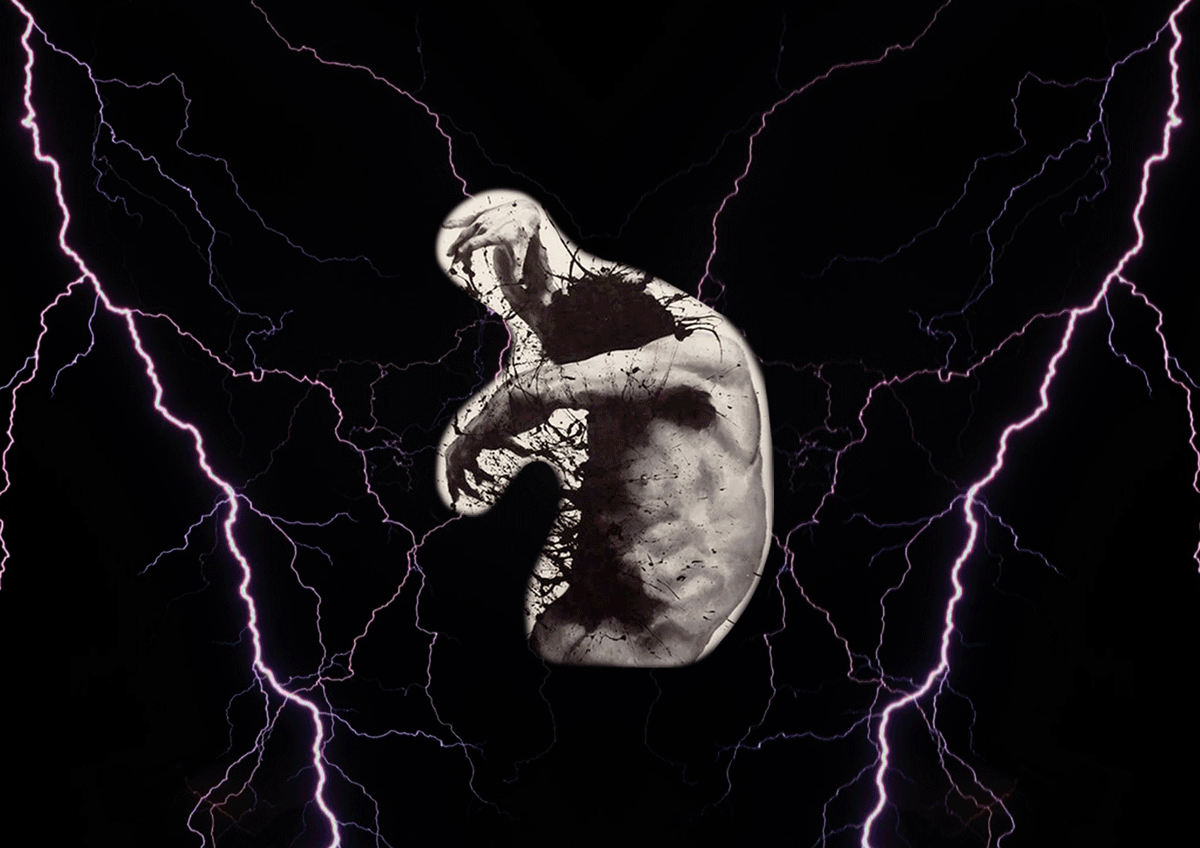We at YEOJA Mag are determined to continue to bring you our regular content but…
Binary Healthcare Systems and their Shortcomings
Olympia Bukkakis on navigating Berlins binary healthcare system after a transphobic attack23 June 2020
Olympia Bukkakis (@olympiabukkakis) is known for her involvement in the Berlin drag scene, as well as the founder of Queens Against Borders, a performance event in solidarity with trans and queer refugees. On her way home on a Sunday night during the COVID-19 lockdown, Olympia was the victim of a transphobic attack in Neukölln, Berlin.
She sustained injuries to her left elbow and also later required reconstructive surgery on her jaw, which was broken during the attack. This transphobic aggression, as explained by Olympia, was caused by the “audacity to walk home while trans in a fundamentally sick society”.
Berlin’s mistreatment of those in the trans community is all too common, and, as said by Olympia, the “logical result of a social commitment to a gender binary that is so arbitrary… and absurd that it needs to be propped up by a panicked fist to my face”.
Part of the healing process after a physical attack can begin when we enter the healthcare system and our physical bodies are treated, but what happens when the system which is meant to aid in your physical recovery causes new injuries? Health care institutions still operate under the binary understanding of gender, which means non-binary individuals need to navigate a system that does not recognise their identity during some of the most vulnerable moments of their life. This experience can be jarring and dysmorphic to say the least.
We wanted to talk to Bukkakis to hear what her experience with navigating this landscape has been like:
Your community was able to raise €7,985 to aid in your recovery process after the attack that took place in Alfred Scholz Platz, Neukölln. It must have been amazing to see your community turn out like that.
Olympia: Yeah it was pretty wild. It’s a very isolating experience to suffer this violence. A lot of the time people just have to take your word for it that this is actually happening. As perpetrators tend to strike when no one is looking, there’s often no evidence unless they visibly break your body. So when I was still in hospital and people were organising this, and such a huge amount of money was raised I was really moved. I’d never felt so cared for by such a large number of people, and it turned out I really needed that feeling in the recovery so I’m hugely grateful. It was also very helpful as I was able to afford taxis to get to medical appointments during the lockdown, and sometimes I’m too anxious or exhausted to go outside so I am able to afford just ordering food in. I can also pay for my permanent hair removal. All of these things have made the experience so much more bearable.

Can you tell us about what your healing process has looked and felt like?
Olympia: Initially I had a cast on my elbow which was sprained and stitches on my jaw. A week after the attack it was discovered that my jaw was broken, which meant I had done a live stream of my talk show Apocalypse Tonight with a broken jaw during a pandemic which was very on theme, and I needed surgery to fix it. That was the most painful part and being in hospital was awful. I was on a lot of painkillers in the weeks after and I’m not allowed to chew food for six weeks. This I think shows a key feature of male[-perpetrated] violence. It takes them a very short time to accomplish, but those on the receiving end suffer consequences that endure for a long time. I need another surgery to have the plates removed from my jaw in nine months, and I may need a root canal if one of my teeth has died which is looking very possible.
A hospital is meant to be a place for healing. However, as many healthcare systems around the world are grappling with stretched resources, overworked nurses and doctors, and understaffed emergency rooms; navigating recovery can be a difficult process for anyone. Limited time and energy means doctors and nurses cannot give patients the level of individual attention they need. This is compounded even more so for those who come from marginalised groups when sub-par treatment goes beyond the general, “we’re too stressed to give you personal care”.
Olympia: I agree. This period is an intensely stressful one for everyone who works in hospitals and not being able to have visitors felt physically painful while I was in there. But this isn’t just because of the COVID-19 crisis, as lot of these conditions were already existing due to a lack of resources. Underfunding healthcare systems pits patients against healthcare workers and leaves everyone with unnecessary levels of stress and sometimes trauma. But it’s important to highlight that this situation is the result of a policy choice. It could easily be changed if we prioritised public health and demanded that our governments invest [in healthcare].
You mentioned being misgendered for four days. How did you process this?
Olympia: I didn’t really. I just had to accept that for four days I would have to play along with being a man so that I could avoid discrimination and/or violence. Being misgendered when you’re not a man or a woman – I don’t really like the word non-binary, as I don’t see my identity as a negation but there’s no common alternative so I just go with non-binary – makes you feel like you were making it up the whole time. It requires a lot of self-trust to really follow the knowledge about who you are, when to a lot of people you don’t even exist. Being placed into a cisnormative institution with no outside access made me lose sight of myself, and it was disorienting and deeply unpleasant.
You were also placed in a men’s ward. Do you know if this is standard practice in Berlin hospitals?
Olympia: I don’t know. Maybe I could have been placed in a women’s ward if I had asked but I wouldn’t have felt comfortable there either. The choice between the anxiety and dysphoria of being in a men’s ward and the fear that someone would object to my presence or treat it as a threat in a women’s ward is an impossible one. I don’t understand why there can’t also be mixed wards.

In a Facebook Post, you wrote, “It’s … a cruel irony that when you suffer the most physical consequences of cis- and heteronormativity, you then must go to one of the most cis- and heteronormative institutions to recover.” It appears that the psychological repercussions of prejudice, privilege, and antiquated binary systems are viewed as secondary in importance, or just or don’t enter the picture at all, to treating what can be seen (with the naked eye or a microscope).
Olympia: I think limited resources and conservative mindsets mean that people make decisions about what’s worth considering and it’s inevitable that minorities or socially-othered people come off worse. This can turn an unpleasant situation into a traumatic one pretty fast. The argument that medical care shouldn’t be unpleasant or traumatising is one that we need to make. The most invasive procedures can be made far more bearable by a kind bedside manner and doctors should have extensive training in this.
What is one thing you wish people in general would know about navigating the Healthcare system as a trans person?
Olympia: I think a lot of cis[-gender] people have an unconscious belief that we are making this up, particularly those of us who are “non-binary”. Even if they play along and respect pronouns, and so on, I think for a lot of people there’s this dark corner of their mind where they still believe that we’re attention seekers or freaks. I don’t say this to condemn people for having this unconscious bias. I think it’s a result of cisnormative social conditioning and playing an individualist blame game helps no one. But, I would like to make it clear that being misgendered does hurt. I wish this would be as simple as a game that I could stop playing but it’s not. It feels violating and confusing to be trapped in an institution, or a world, that insists that I am someone other than who I know myself to be.
Your story reminds us again that as you put it (in a Facebook post), there is a “layering of difficulties that makes accessing medical care increasingly difficult for those who are oppressed along multiple axes.” We all know what needs to change on a systemic and institutional level in order to prevent situations like this from happening, like mandatory private rooms for trans people, more funding and sensitivity training. But how and what needs to happen to actually put this into motion? And what should we be doing on a grassroots level to affect this change?
Olympia: I think it all comes down to funding and what we value as a society. Neoliberal capitalism is not conducive to medical environments that are caring and safe for people who deviate from a universal ideal of the citizen or the consumer. We need to support cleaners and nurses when they strike. We need large scale campaigns for education on sex and gender in schools with a trans inclusive perspective. We need to question the idea of running a society based on the profit motive. All of these issues need to be understood within a broader strategy for fundamental social change. Healthcare is a trans issue, a race issue, a class issue and supporting equitable access to it can’t be divorced from an argument for a radical restructuring of our society. So join your union, get involved in leftist politics and read up on socialism!

Although it should not fall to trans people to have to sort a broken binary healthcare system on their own, as things are not going to change tomorrow, what advice do you have for trans people who are forced to navigate hospitals in emergency situations? What can they do to “prepare” (if anything) and retain agency and control (if possible)?
Olympia: I found speaking German was a very important tool to assert myself. People should also do some reading about the situation wherever they are so that it’s not a surprise when they suddenly end up there. It’s hard to say though, because we can’t control when someone is going to put us in hospital for walking on the street, and we also can’t really control what the hospital system does to us. We’re really put in a double bind here. I could handle it if it was just violent transphobes on the street, or a cisnormative medical system, but when it’s both it feels very frightening. It’s very helpful to arrange a network of support and in normal times they would be able to visit you in hospital and/or advocate for you. Although of course at the moment this isn’t possible.
You also stated in a Facebook post, “Again, I insist that this intrusion on my body has nothing to do with me and is not my business.” Can you elaborate on this?
Olympia: Very often when stuff like this happens we assume that it’s a problem that is unique to the victim and their life but that’s a view that allows these attacks to continue. Transphobia is cis people’s problem, not ours; just as homophobia is a heterosexual disease. I’ve dealt with the internalised transphobia and homophobia that the culture of my birth instilled in me.
I have no more work to do there. I’m fucking fabulous. It’s now the job of straight and cis people to get their shit together and sort out their panic at the sight of us. This violence comes from many places but not all of them are obvious. Transphobia on the street comes mostly from middle and working class men. But they’re far from alone. Transphobic feminists love teaming up with christians and the far right to deny healthcare to trans kids, like in the U.K., and conduct scare campaigns that make our lives less safe. The mostly male elites who have instituted a decade of devastating austerity policies have made this whole situation possible where angry young men are out on the streets looking to perform their masculinity as violently as they can. In the midst of this, our visible presence in public is treated as a provocation in and of itself. It’s not. We function as a projection screen for the fears and desires of cis people and to be honest it’s just a bit weird. We don’t instigate transphobes’ morbid and often violent fascination and we shouldn’t have to deal with the consequences of it. So I refuse to feel the shame that this man tried to give me and I’m handing it right back. This is everyone’s problem, not mine. I won’t let people forget that.
You are outspoken about your experience as well as the healing process in order to create a conversation around healing and how to heal as well as to denounce queerphobia although taking on this role can also be emotionally and physically draining. How do you make sure to find time for yourself outside of these contexts?
Olympia: I think it’s also helpful for me to talk about this publicly because it helps me control the narrative around what happened to me. So in a way it is showing myself care. But as I’ve recovered I’ve had plenty of time to do what I need to do to feel okay. I couldn’t exercise or do yoga so I took up meditation which really helped. I also made sure I never tried to hide from what I was feeling and accepted that that might mean that I feel like shit for quite a while. But by feeling this and not repressing it I can feel that it’s passing quicker than it would have. I think I’ve also been made helpless to the point that I had to rely on people and learn to accept that care can be really lovely. It’s a very strange thing to say but I’m happier now that I have been for a long time.
Are there any closing words that you would like to share?
Olympia:Transphobia will never be fully dismantled under capitalism. We need a massive change in the way that society is structured in order for people like me to live safe and fulfilling lives. The majority of people who die as a result of transphobic violence are racialised sex workers who work in places where sex work is illegal and there is no properly functioning welfare net. Ending transphobic violence means legalising and supporting sex workers and combatting racial and class oppression.
_
Original artwork created exclusively for YEOJA Mag by Nilufar Zarre. For more in beauty and health click here








